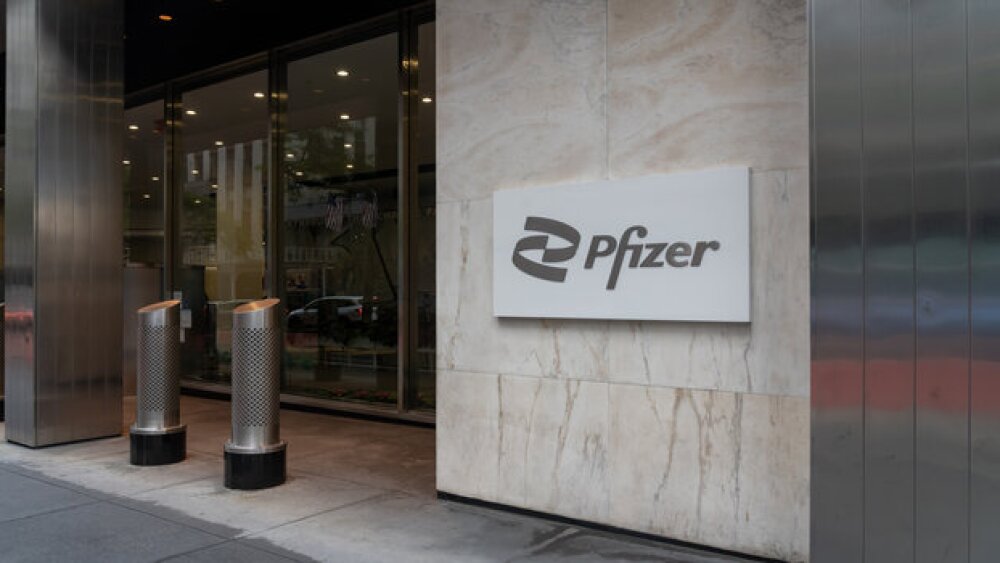The FDA on Monday gave the greenlight to Pfizer’s RSV vaccine for expectant mothers, given during the third trimester of pregnancy, designed to protect newborn babies through the first six months of life.
Pictured: Pfizer’s world headquarters in New York/iStock, JHVEPhoto
The FDA on Monday approved Pfizer’s respiratory syncytial virus vaccine Abrysvo for use in pregnant women to prevent RSV-associated lower respiratory tract disease in infants.
Abrysvo is an unadjuvanted bivalent RSV prefusion F vaccine composed of two proteins that were selected specifically to optimize against the RSV A and B strains. The shot was first approved in June 2023 for use in older adults aged 60 years and above. With Monday’s approval, the vaccine can now also be administered to pregnant women at 32 through 36 weeks of gestation to elicit immunity in their infants.
Abrysvo is the “first and only maternal immunization to help protect newborns immediately at birth through six months,” Pfizer CSO Annaliesa Anderson said in a statement.
Data from the Phase III MATISSE trial supported the FDA’s approval. At the study’s prespecified interim analysis, Abrysvo had a vaccine efficacy of 81.8% for preventing medically-attended severe RSV-associated lower respiratory tract disease (LRTD) 90 days after birth. This waned slightly to 69.4% at 180 days. The findings were published in The New England Journal of Medicine in April 2023.
Abrysvo’s strong showing in MATISSE earned it the support of the FDA’s Vaccines and Related Biological Products Advisory Committee, which in May 2023 unanimously showed confidence in Pfizer’s efficacy data. The panel voted 10–4 on safety, with some flagging the higher rate of premature births associated with Abrysvo, though the data were not statistically significant.
Pfizer is continuing to develop Abrysvo and has launched two clinical trials to assess the vaccine in high-risk children aged two through 17 years, and in adults aged 18 through 60 years who have underlying medical conditions such as asthma and diabetes.
Also authorized for pediatric immunization against RSV is Sanofi’s and AstraZeneca’s Beyfortus (nirsevimab), a monoclonal antibody that won the FDA’s approval last month. Beyfortus works by binding and disabling the part of the RSV virus that attaches to the host cells. It is indicated for infants entering their first RSV season and in children up to 24 months of age who are at risk of severe infection.
Other companies in the RSV space include GSK, which last year edged out Pfizer and secured the FDA’s first-ever approval for a vaccine. GSK’s product is indicated for older adults aged 60 years and above. Moderna is also working on its own mRNA-based RSV shot and in July 2023 announced it had initiated the rolling submission for its Biologics License Application with the FDA.
Tristan Manalac is an independent science writer based in Metro Manila, Philippines. He can be reached at tristan@tristanmanalac.com or tristan.manalac@biospace.com.






